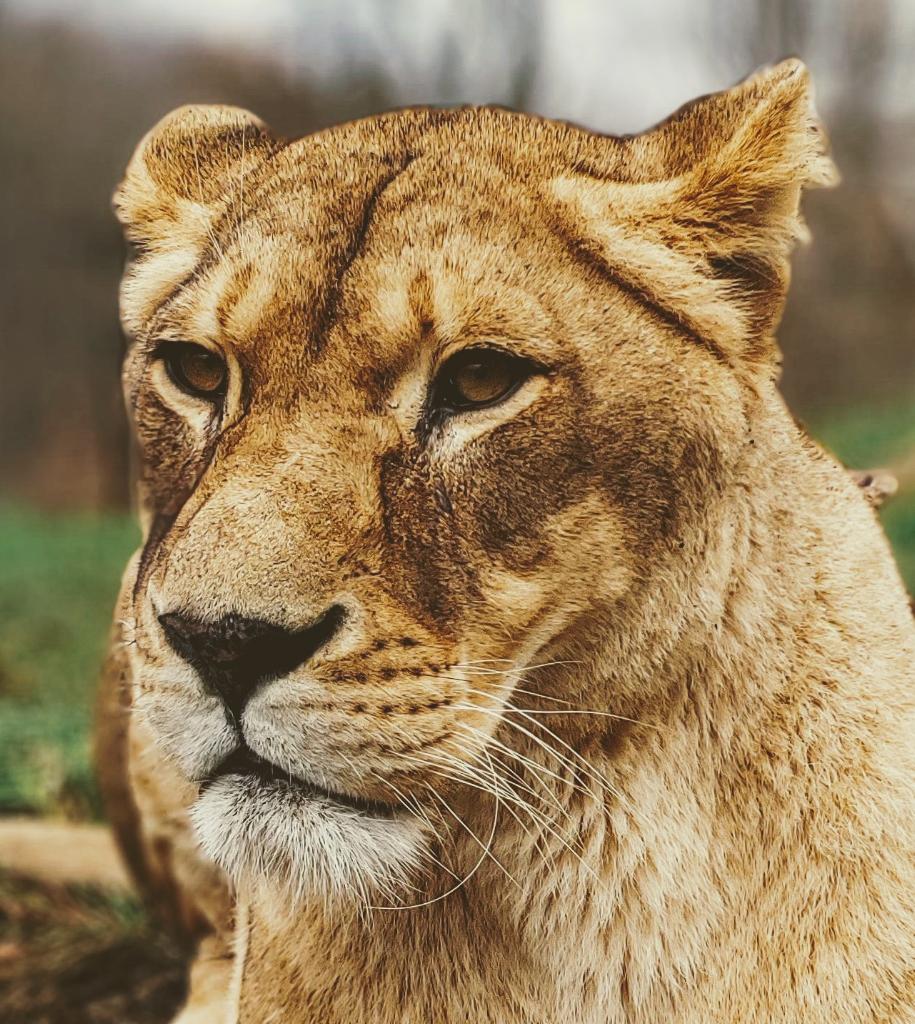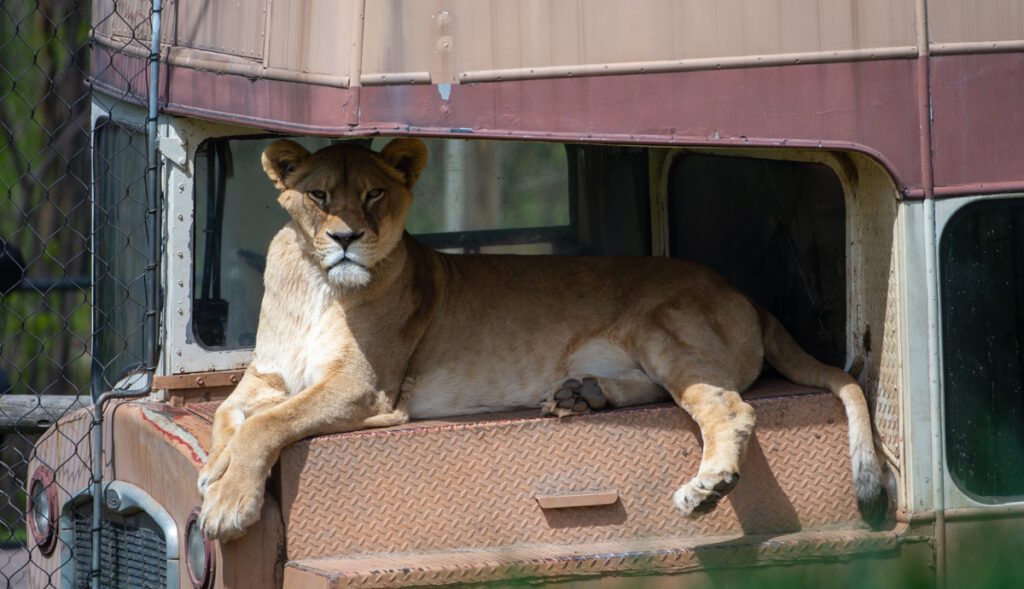Zuri is trained to allow us to collect vaginal swabs for reproductive evaluations and research. This process is not painful and only takes a few seconds. Zuri is allowed to leave if she chooses, but she often stays put even after we are done! The swabs are then rolled on glass slides to transfer any cells onto the slide.
These are used for cytology – evaluation of the cells under a microscope. The slides are sent to the Lindner Center for Conservation and Research of Endangered Wildlife (CREW). This organization performs important research regarding the protection and conservation of endangered species. They also have educational programs to help spread knowledge and engage the public to help save endangered species.
This research is important for many of the species that we work with in zoos because many wild populations are faced with the threat of extinction. Lions are listed as a vulnerable species by IUCN, which is one-step below endangered, meaning that wild populations are declining and they are facing a high risk of extinction in the wild.
Knowing more about their reproductive physiology helps to increase success of breeding in zoos, which helps zoos to maintain healthy and genetically diverse populations.
Reproductive research also helps us to understand how animals reproduce in the wild and what factors could disrupt or help to increase reproductive success. This knowledge is an important component of conservation strategies.
– Dr. Chris McKinney (DVM / Zoo Veterinarian)










